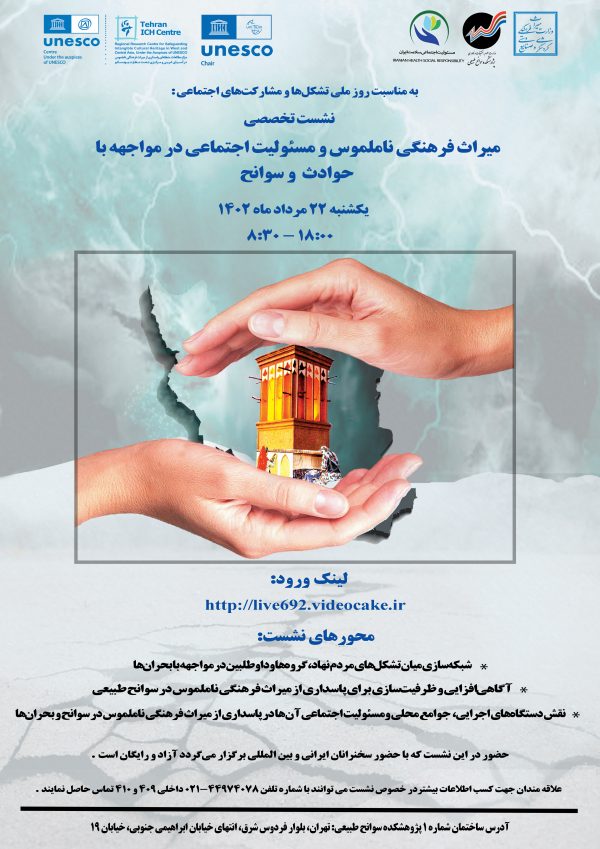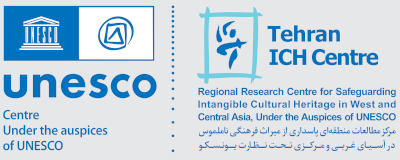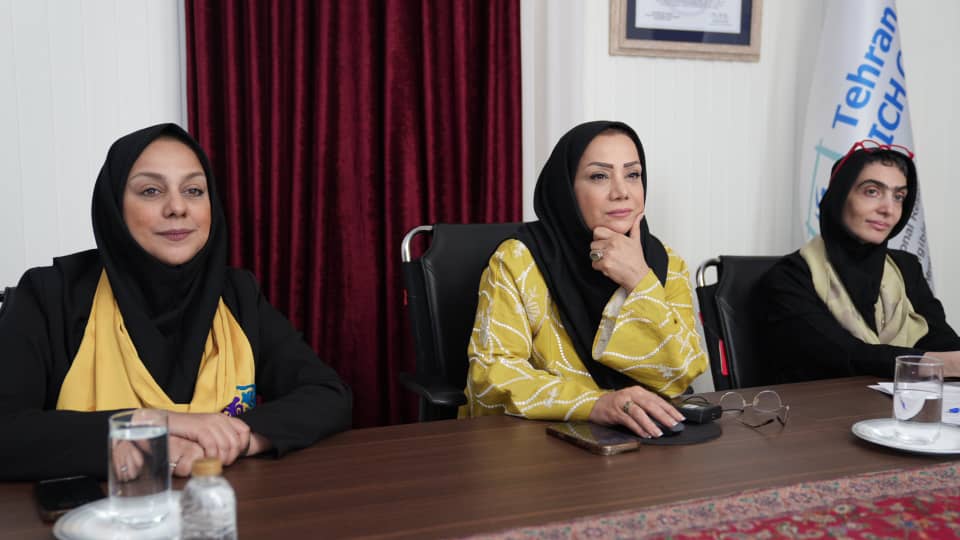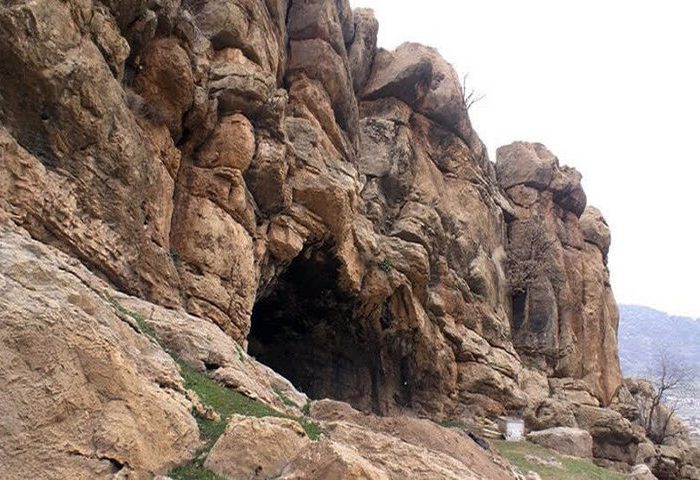In order to meet the challenges to which intangible cultural heritage is subject due to the rising impacts of climate change and to highlight the role of intangible cultural heritage and social responsibility in pre- and post-disaster response to the damages inflicted on communities, societies and heritage by climate change, with focus on highlighting the role of non-governmental actors in assisting community revival and post-disaster response, the Regional Research Centre for Safeguarding Intangible Cultural Heritage in West and Central Asia, under the auspices of UNESCO (Tehran ICH Centre), organised, in a joint venture, with the Iranian Natural Disasters Research Institute (NDRI), the Iranian Ministry of Cultural Heritage, Tourism and Handicrafts (IMCHTH) and the Iranian Health Social Responsibility Institute a one-day event, held both in presence and online, bringing together Iranian and international experts from India, Indonesia and Italy on ICH, social responsibility and natural disasters management. The total number of participants was 400, with 80 in presence individuals and the remainder (320 individuals) attending the event online. The language of the event was English and Persian with simultaneous interpretation.
In addition to the Opening Ceremony, the meeting hosted three panels followed by question and answer sessions on: a) policy-making in ICH, with focus on social responsibility and disasters’ management; b) lived case studies and/or experiences in the face of natural disasters; and c) NGOs and social responsibility to safeguard intangible cultural heritage in the face of natural disasters.
A wide variety of topics were discussed by a total number of 17 speakers, 5 of whom participated online. The topics of the talks included: “Safeguarding ICH in disasters: national and international approaches and challenges”; “capacity-building for social responsibility in the face of natural disasters in developing countries”; “resilience based on the experience of living in Iran”; Policy challenges in researching in the area of disaster risk management and natural disasters”; Revisiting the connection between cultural heritage and natural disasters”; “The role of local governance and social systems in preventing and managing disasters: experiences from history”; “Water and intangible cultural heritage”; “ICH and social responsibility in the face of natural disasters”; “Future studies, assistance (Yarigari) and local communities in the face of crises and disasters”; “After the water: ICH and holistic disaster management”; “The role of NGOs in implementing UNESCO’s 2003 intangible heritage convention: building pre-and post-disaster resilience”; “The role of the motivation-experience relationship in disaster tourism: the case of Vajont dam, Italy”; “Baghestan: a garden for living (in)”; and “The role of animation in training to apply ICH and social responsibility to face natural disasters”.





